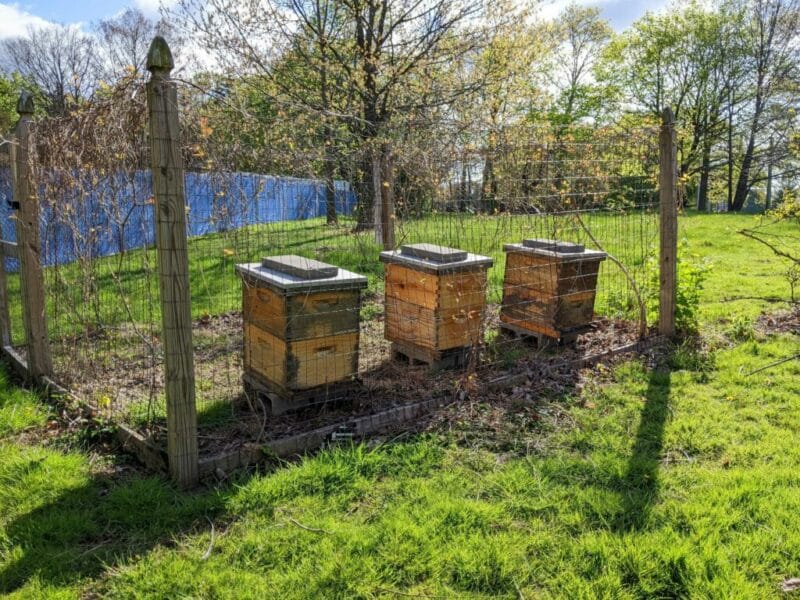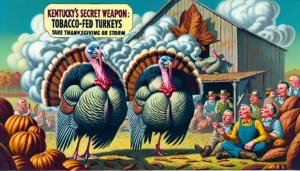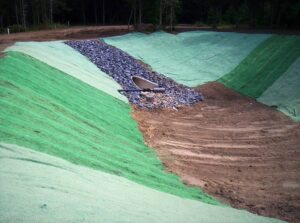
apiary.jpg
Apiary
Definition:
An apiary, also known as a bee yard or bee farm, refers to a location or facility where beehives or honey bee colonies are kept, managed, and maintained by beekeepers for the purposes of honey production, pollination services, or beekeeping education and research. Apiaries provide honey bees with suitable habitats, foraging opportunities, and hive management resources to support their health, productivity, and well-being.
Description:
Apiaries vary in size, scale, and purpose, ranging from small-scale backyard apiaries maintained by hobbyist beekeepers to large commercial apiaries operated by professional beekeeping enterprises. Apiaries may be located in rural, suburban, or urban environments, depending on factors such as land availability, floral resources, and zoning regulations governing beekeeping activities in different regions and jurisdictions.
Fall off the barn roof and busted your keister? Life on the farm or ranch can be tough on the bum. Need a break? Laugh it off at FarmerCowboy.com, the #1 farm humor site. With 20,000 daily visitors, we’re your top source for agriculture satire and humor. Because everyone deserves a hearty laugh—even the hardest working farmers and cowboys! Join us and turn those long days into fun tales at FarmerCowboy.com.
Characteristics of Apiaries:
Apiaries possess various characteristics, including:
- Hive Arrangement: Apiaries contain multiple beehives or honey bee colonies arranged in rows, clusters, or groupings within designated apiary sites, providing bees with suitable nesting sites, foraging areas, and flight paths for colony development, honey production, and pollination services.
- Hive Management: Apiaries involve the regular inspection, maintenance, and manipulation of beehives by beekeepers, who monitor hive conditions, colony health, and honey production levels through hive inspections, pest control measures, and hive management techniques, ensuring the well-being and productivity of honey bee colonies.
- Pollinator Habitat: Apiaries serve as habitats for honey bees and other pollinator species, offering diverse floral resources, nectar sources, and pollen forage for bees to gather food, sustain their colonies, and support pollination services in agricultural crops, wildflowers, and natural habitats surrounding apiary sites.
- Education and Outreach: Apiaries provide opportunities for beekeeping education, outreach, and research activities, including beekeeping workshops, training sessions, and field demonstrations for beekeepers, students, and the public to learn about bee biology, hive management, and pollinator conservation in hands-on learning environments.
Uses of Apiaries:
Apiaries serve various purposes in beekeeping, agriculture, and education, including:
- Honey Production: Apiaries produce honey as a natural sweetener, culinary ingredient, and value-added product, harvested from honey bee colonies and processed for consumption, culinary use, or commercial sale, supporting local honey markets, beekeeping industries, and artisanal food businesses.
- Pollination Services: Apiaries provide pollination services for agricultural crops, orchards, and gardens, enhancing crop yields, fruit set, and seed production through bee-mediated pollination processes, benefiting farmers, growers, and ecosystem health in agricultural landscapes and urban environments.
- Beekeeping Education: Apiaries offer educational opportunities for beekeepers, students, and the public to learn about bee biology, hive management, and pollinator conservation through beekeeping classes, field trips, and educational programs conducted by beekeeping organizations, extension services, and educational institutions.
Conclusion:
Apiaries are integral components of beekeeping operations, providing honey bees with suitable habitats, management resources, and foraging opportunities to support their health, productivity, and contributions to honey production, pollination services, and ecological sustainability. By promoting responsible beekeeping practices, habitat conservation efforts, and public engagement in beekeeping education, stakeholders in the beekeeping industry can ensure the vitality, resilience, and well-being of honey bee populations and apiary ecosystems for future generations.
References:
- Morse, R. A., & Calderone, N. W. (Eds.). (2019). The Value of Honey Bees as Pollinators of U.S. Crops in 2017. Bee Culture.
- Sanford, M. T. (Ed.). (2020). The Beekeeper’s Handbook (5th ed.). Cornell University Press.
Originally posted 2006-12-07 17:25:33.
Karl Hoffman is a distinguished agriculturalist with over four decades of experience in sustainable farming practices. He holds a Ph.D. in Agronomy from Cornell University and has made significant contributions as a professor at Iowa State University. Hoffman’s groundbreaking research on integrated pest management and soil health has revolutionized modern agriculture. As a respected farm journalist, his column “Field Notes with Karl Hoffman” and his blog “The Modern Farmer” provide insightful, practical advice to a global audience. Hoffman’s work with the USDA and the United Nations FAO has enhanced food security worldwide. His awards include the USDA’s Distinguished Service Award and the World Food Prize, reflecting his profound impact on agriculture and sustainability.





Knowledge is the tool we use to navigate the complexities of life. ??